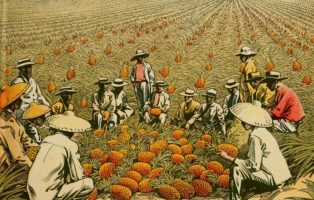Vanhaute, Eric
NIAS-Theme Group Fellow

Commodity frontiers and the making of Global Capitalism
Providing a long historical perspective on problems that are often assumed to be modern, the Commodity Frontiers Initiative will endeavor to recast our thinking about issues of sustainability, resilience, and crisis and thus contribute to the politics of our own times.
Project Description
The Commodity Frontiers Initiative aims to systematically catalogue, study and analyze a wide variety of commodity frontiers over the past 500 years. Commodity frontiers are sites of cultivation of commodities like wheat, sugar cane, tobacco, cocoa, coffee, and cotton, as well as sites of extraction such as forests, marine zones, and mines. Our ambition is to understand the role of the countryside and its people in the history of capitalism through a large multi-year research collaboration that combines local in-depth studies with innovative digital technologies.
Selected Publications
World History. An Introduction, Routledge, 2013, VIII-182 p.
“From famine to food crisis. What history can teach us about local and global food crises”, Journal of Peasant Studies, Volume 38, Issue 1, 2011, pp. 47-65.
“Peasant Labour”, in M. Van der Linden and K. Hofmeester (eds), Global History of Work, De Gruyter, 2017, forthcoming
-

-
 Fellow
FellowBeckert, Sven
-
 Fellow
FellowBosma, Ulbe